Recently, there have been a lot of opinions and disputes surrounding such a violation of the law as beatings. This is largely due to the recent decriminalization of beatings, while the corpus delicti has narrowed significantly. How to understand the current situation? What provisions on beatings are enshrined in the Criminal Code and how do they differ from administrative law? The article will provide an answer to all these questions.
What are the beatings?
It would seem that there is nothing complicated or unusual in the concept of “beating”: one person does physical harm to another person. However, in jurisprudence everything is much more confusing. Specialists in the field of law compose whole classifications in order to determine the degree of violation of the law by one or another citizen.
According to the criminal law characteristic, beatings are called multiple striking to a person, that is, ordinary beating. One hit cannot be regarded as beatings. The presented actions can cause significant harm to a person: disrupt the state of health, make a person incapable of work, and sometimes even incapacitated. The corpus delicti of beatings is taken into account only if all acts violating the law were intentional. Otherwise, criminal responsibility will be laid for a completely different crime, namely for causing harm by negligence.
Composition of the crime (beatings)
Article 116 of the Criminal Code of the Russian Federation made it possible for lawyers to determine the scope and subject of a crime. Who is the object of the crime in this situation? According to the law, this is the victim himself. In the case of an object, there is the so-called objective side, expressed directly in beating a person. Lawyers outlined the scope of the presented objective side. In the case of a beating, there should not be less than two hits, as well as actions that cause severe harm to human health. It is worth noting here:
- striking with sharp objects;
- setting animals;
- impact on the human body of fire, etc.
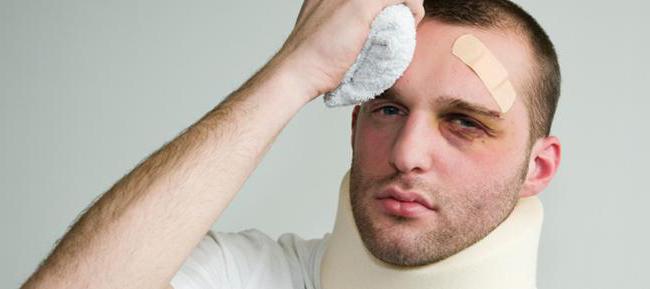
The objective side, therefore, will be a simple punching. And who or what is meant by the subject of the crime (beatings) under the Criminal Code of the Russian Federation? According to the law, this is a capable person who has reached 16 years of age, whose guilt has been proved in court. The subjective side in this case will be a criminal intent - indirect, that is, through negligence, or direct, that is, intentional.
Beating
A criminal case against a guilty person is instituted only if there is concrete evidence of a violation of the law. For the appearance of a clear corpus delicti in the beatings, the victim must contact a medical institution where evidence of the offender’s guilt will be removed. In the entire criminal process, these facts will play a crucial role. Otherwise, the victim will have to prove everything on his own.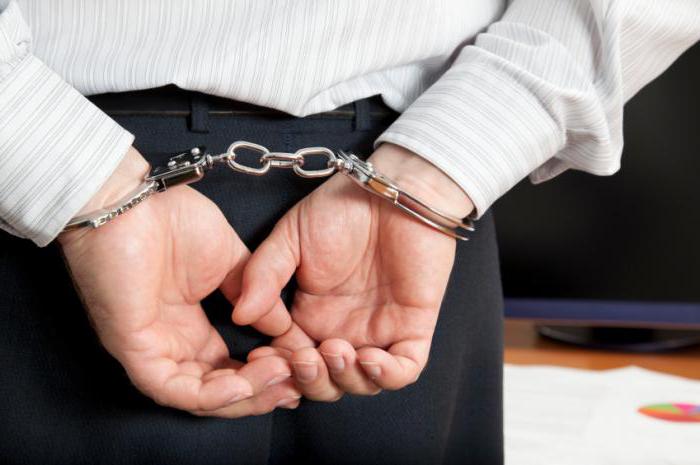
It is also worth noting that the Criminal Code of the Russian Federation does not force citizens to remove beatings. The corpus delicti may not arise if the conflict is settled within a certain circle of people. In addition, the type of violation of law under consideration relates to cases of private prosecution. It must also be indicated that the maximum period for beating after beating is 48 hours. As a rule, traumatic traces for a specified time period have time to disappear. The beatings themselves are removed either at the emergency room or at a paid clinic.
Writing a statement
After removing the beatings and receiving the appropriate statement from the doctor, you will need to contact the police. The duties of the inquiry officer accepting certificates include assistance in writing an application addressed to the head of the department. The application is made in any form. At the same time, you need to specify everything as detailed as possible. Particular attention will have to be paid to the details: the exact location of the incident, time, injuries, etc. The names and surnames of both the victim and the person who caused the harm are indicated. If witnesses were present during the beating, they should also be indicated in the document.
Do I need to go to the police at all? In Russia, such a question is most acute. As a rule, beatings are inflicted in the family circle, and therefore not everyone has the desire to punish one of their loved ones. And yet, if the victim suffered serious physical harm, and the perpetrator is still dangerous, then writing a statement is simply necessary. Those who harmed will be held criminally liable under Article 116 of the Criminal Code of the Russian Federation, “Beatings”. The only exceptions are cases where the violation of the law belongs to the administrative category of punishments. This will be described later.
Trial
The application was filed with the police, the case was opened. What should be done next? The victim or his representative is sent to the magistrate or district court - depending on the gravity of the crime. If the beatings are moderate or severe, then you should still turn to the court of the district level. The fact is that justices of the peace, the lowest instance, are not able to decide on punishment in the form of an arrest of more than three years.
What rights does the prosecutor have? It is worth noting here:
- the ability to make comments when filling out documents;
- the right to familiarize yourself with the case records;
- the ability to support the prosecution;
- the right to testify;
- opportunity to appeal the verdict.
Clerical work will be stopped only after reconciliation of the parties in the courtroom or after the judge himself makes the appropriate decision.
Beatings in the family
Domestic violence is probably one of the most pressing problems in modern Russia. In addition, the problem began to play with new colors recently: according to the draft of the scandalous senator Elena Mizulina, in 2016 Russian legislation underwent considerable changes. Beatings in the family ceased to belong to the group of criminal cases. But is it all sad?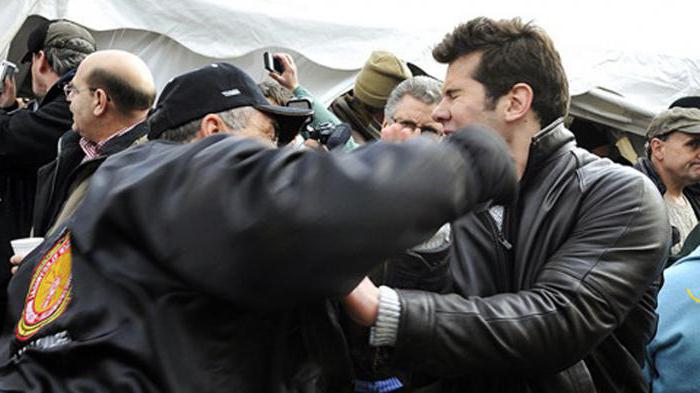
According to the law, the first fact of beating in the family circle is considered not a criminal offense, but an administrative offense. Repeated incidents are a factor in establishing criminal liability. In the case of the beating of children, certain rules of the law establish stricter sanctions.
I must say that the changes adopted by the Parliament practically do not change anything: the majority of victims in families prefer to remain silent and not file any complaints with the police.
Beating minors
As already mentioned, child beating is regulated by individual rules of the law. Far more severe and tangible sanctions are imposed on the guilty person, very different from those that could have followed the beating of adults. It is worth referring to article 63 of the Criminal Code of the Russian Federation, which also contains a characteristic of the concept of “beatings”.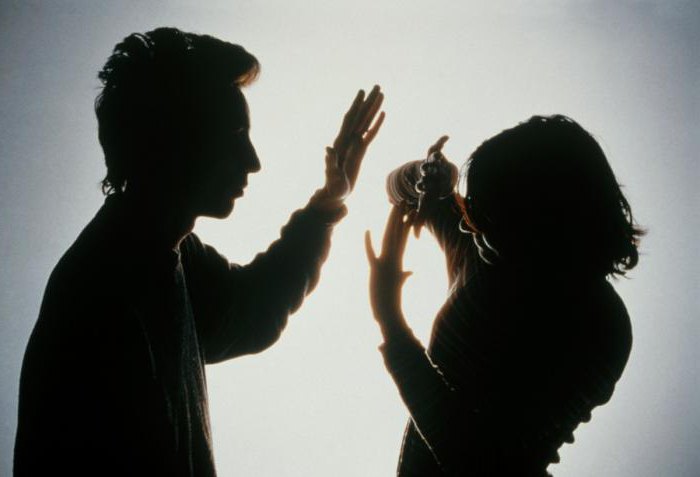
The composition of the crime varies greatly when it comes to beating children. The court considers the presented type of violation of the law as an aggravating circumstance. For inflicting beatings on a minor (under 14 years old), the perpetrator will be punished with a term of up to 10 years in prison. According to article 116 of the Criminal Code, punishment for beating minors (from 14 to 18 years old) can be up to 7 years in prison.
Group beatings
A common phenomenon in any society is a group fight.How does this type of violation of the law qualify? There is no separate article for the beatings with the offense of a group type. However, legal experts were able to develop a picture with the definition of appropriate sanctions.
Naturally, the severity of punishments for perpetrators will depend only on the state of health of the victim. But one more point plays an important role here: how the offense was carried out - spontaneously or by conspiracy. If there was a conspiracy, after which the victim received serious injuries, then the accomplices can receive 12 years in prison. In this case, we are talking about hooliganism as part of a beating crime. With moderate injuries, the perpetrators will expect a period of 5 years. If the beatings ended in the death of a person, then the accused will be punished according to another article - now about the murder.
Torture and beatings: what is the difference?
Article 117 of the Criminal Code of the Russian Federation indicates another common crime called torture. It is worth noting that the torture is very similar to the beatings. The general characteristics of the composition of the crimes, however, are completely different.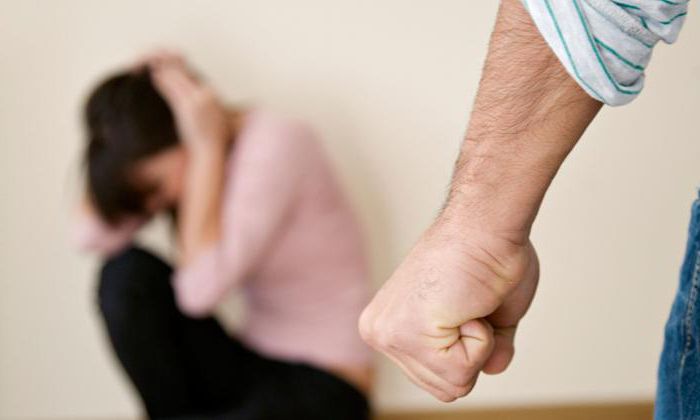
Torture is called violent action, which may result in physical or mental harm to a person. It would seem that the beatings have exactly the same characteristic. However, there is a difference, and a significant one. So, if violent acts were committed with a certain time period, namely more than three times, then criminal liability will be brought under article 117 of the Criminal Code of the Russian Federation. In this case, do not confuse torture with repeated beatings. In the first case, the time intervals will be slightly less or they will not be at all: causing pain will be continuous. In addition, torture may involve harm with the help of additional means: water, heavy objects, fire, etc.
The disposition of both crimes is nevertheless the same. Both types of violation of the law include striking, as well as acts of a violent nature.
Types of punishment
Finally, it is worth paying attention to the sanctions that may be imposed for the presented types of violation of the law. For beatings as an independent corpus delicti, the punishment is established by the court. At the same time, a lot of different nuances are taken into account. So, the court must pay attention to the following details:
- the number of persons participating in the beatings;
- against whom violent acts were committed;
- who exactly beaten;
- what time the crime was committed.
Before announcing the results of the trial, the servants of the law must accurately determine the severity of the harm caused. It is on the results of the assessment that the imposed sanctions will depend. But what does the Criminal Code say? Article 116 states the following:
- correctional work up to six months;
- compulsory work up to 180 hours;
- imprisonment from 1 to 15 years.
The administrative code establishes penalties for such beatings as house or administrative arrest and fines.
Amnesty of beatings accused
The clerical work was successfully completed, the culprit is in prison. Does he have the opportunity to go ahead of schedule under an amnesty? In 2015, a norm was introduced according to which convicts for beatings were included in the list of possible amnesties. However, this applies only to those persons who are serving sentences of no more than five years.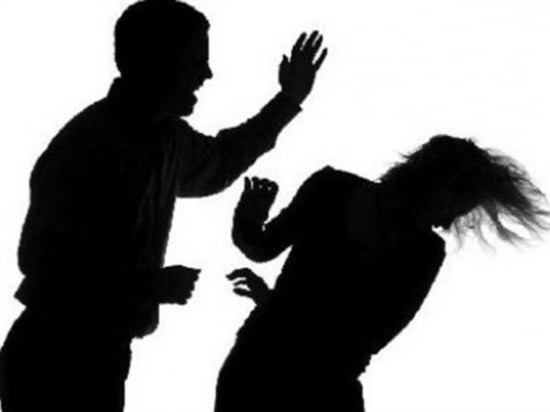
The decision on amnesty is taken by the State Duma of the Russian Federation. A serving punishment for beatings may be granted either release or a reduction in prison term.